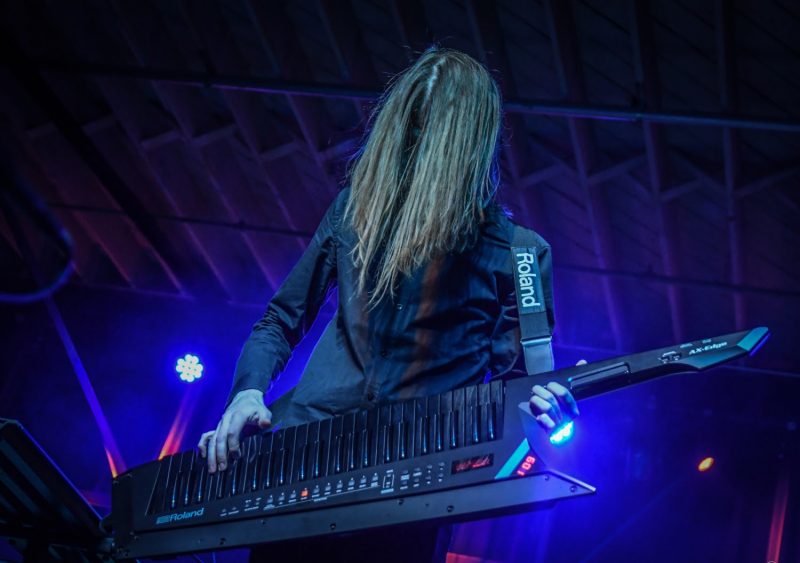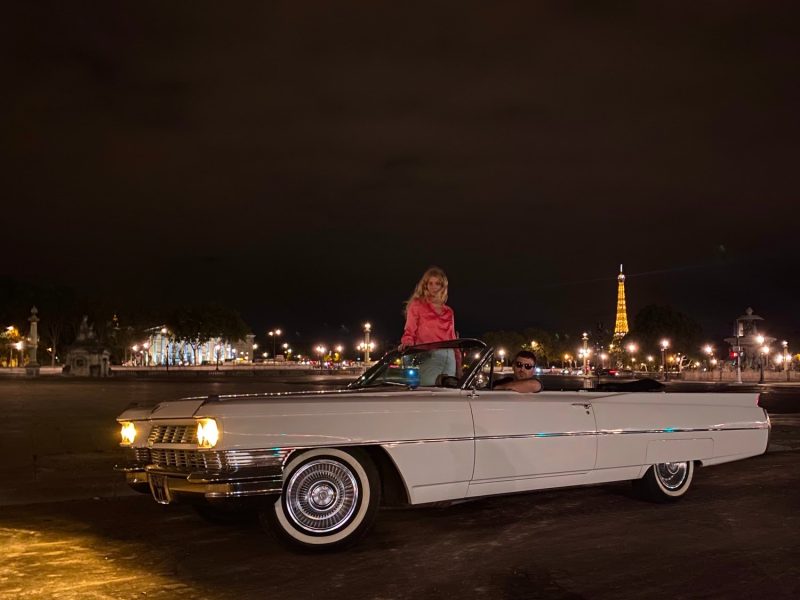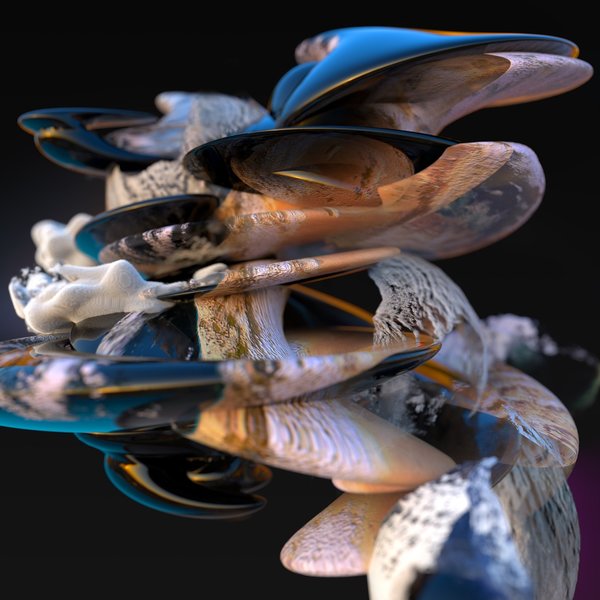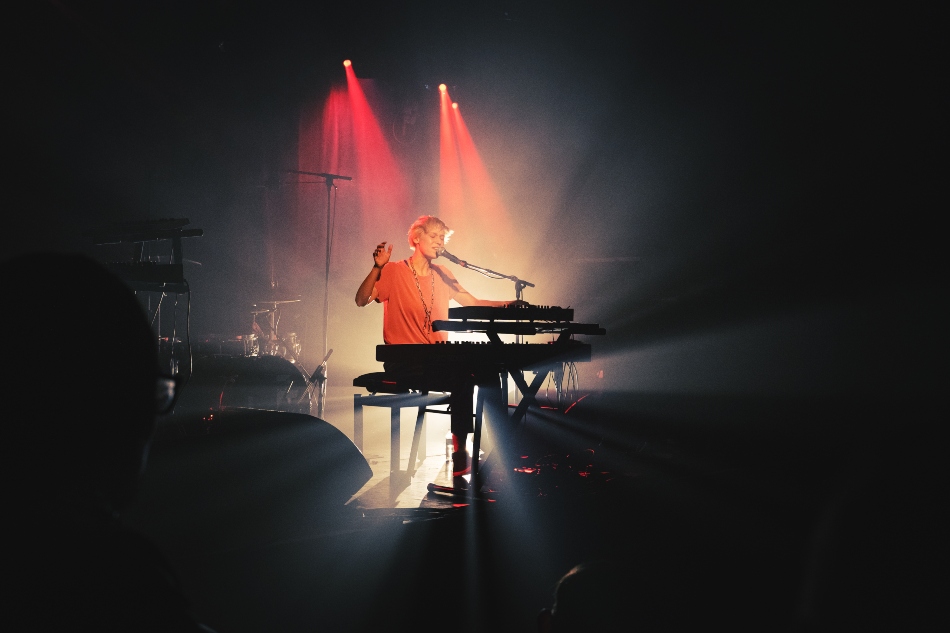Interview: Five Minutes with Axel Thesleff
Image credit: Tony Nicholson
Finnish producer Axel Thesleff ventures back into the realm of Eastern world music with his latest release as he joins ShiShi in reworking the single ‘Sajani (feat. Ben Parag)’, drawing in electronic elements and perfectly enshrining the Hindustani lyrics. ‘Sajani 2.0 (feat. Ben Parag)’ is released via CASHIR and precedes a live performance from Thesleff himself, tomorrow with Colours Of Ostrava. Axel Thesleff first gained notoriety with the release of his bass-heavy single, ‘Bad Karma’ which was featured on BBC Radio and as part of Adidas‘ 2020 ‘Faster Than’ campaign. However, the producer is well-known for playing around with a variety of genres, including experimental and even metal while still creating music that reflects cultures and societies, incorporating vocals in languages that few would know or even recognise. Thesleff and ShiShi have both worked on projects inspired by “The Outlaw Ocean”, a book written by investigative journalist Ian Urbina which explores the unreported crimes of our seas – a cause close to Axel’s heart that he continues to campaign with his music.
Stream / Download ‘Sajani 2.0 (feat. Ben Parag)’
Join us as we learn more about Axel Thesleff, the man who refuses to embrace the normal in the exclusive interview below.
Set the tone for us. Why the arts?
For me, it’s all about self-expression. It’s something that I have in me and needs to get out. Without it, I feel deprived and suffocated. When I create, I feel like I’m doing what I’m supposed to and I’m completing my mission here on Earth. I’ve always been a creative type. My mind is often wandering around in its own world, although I’ve learned to manage that better through meditation in recent years. Being able to manifest my inner world into existence and providing value to others that way is what I find most fulfilling in this world.
Which comes first when you’re producing – the sound or the idea?
Usually, I have a certain type of feeling first, which is a reflection of my accumulated experiences, emotions and thoughts at that moment. Like a cross-section of my mind at one point in time and I’m trying to convey that in a musical way. The sound design process often comes after that, where I’m gravitating towards the sounds that fit my mood and inspiration in the moment. But sometimes it goes the other way around, where I’m just jamming around with the keys and tweaking until I land on something that gives me that magical feeling and just clicks.
Does your material feature any collaborations?
Yes, I’ve collabed with numerous artists in the past, like CloZee, Take/Five, Richard Walters, Alex Banks to name a few, but I also equally like working solo as well since I usually have a pretty clear vision of what I want to do artistically. Most recently I collaborated with Ian Urbina, a journalist (NYT, The New Yorker, BBC) who’s written a book called ‘Outlaw Ocean’, on which I based a concept album release. I’m interested in doing more cross-disciplinary collaborations in the future also, as well as collaborating with singers.
What’s on your current playlist?
Beats Antique, Fakear, ESCPE, CloZee, MEMBA, Robot Koch, Echo Map, to name a few of the artists. I have a Spotify playlist called ‘Electronic at Midnight’ where I’m highlighting the songs I’ve been vibing to lately. I’m mostly interested in electronic music that’s progressive and has an interesting structure that goes to places.
Tell us about the chemistry you have with your fans on stage.
I play 3 electronic instruments on stage: a drum pad, a mallet instrument (like a xylophone), and a keytar. There is no table or other barrier between me and the audience so I have an unobstructed connection with them. The way I perform live is to play all the main elements in my music on the spot, so throughout the gig, I’m switching between the instruments on the fly to play the sound I wanna play section to section. So the chemistry happens through playing: the crowd can recognise the sounds I’m playing from the studio versions of the songs, and I’m able to expand on the ideas and improvise in the moment, just for them. I also like to get really up close and personal with the audience when I’m playing the keytar, since it’s wireless and I can freely move directly in front of the crowd which always gets everyone going, myself included.
What techniques do you experiment with to get your original sound?
The sound I’m going for heavily depends on the song I’m creating and the mood I’m going for. Generally speaking, I’m usually going for an organic and lush sound. I like layering multi-sampled instrument sounds with sound synthesis to create a kind of electro-acoustic sound hybrid that borders between real and imaginary. I like my synth sounds not sounding too “synthy” if you know what I mean, although I love to use analog synth sounds every once in a while. I find myself doing a lot of creative sampling where I might start with one sound and end up transforming it into something completely different. My sound design process is usually quite effect-heavy, and I’m typically automating many parameters at the same time, to create a sense of movement and progression. Electronic music production can sound quite “computery” sometimes, so many of the techniques I utilise have the purpose of making it sound more organic and human to get more feel out of the music. I like going off the grid and in between the notes, I often play the melodies and other parts with an instrument to get that human performance in there. In general, I work a lot on the keys when I’m composing a song. Coming up with the harmonic structure of a song is a big part of my focus.
Take us through a day in the recording studio.
There are many types of days in the studio, depending on what’s on my schedule. It could be starting something fresh or continuing/finishing up something I’ve already started. The studio is also my rehearsal space. I have the same instrument setup in my studio as I have on stage as well so I can start practising the live show at any time I want with no hassle. When I have days where I’m feeling really creative and inspired, I start new song ideas and then try to forget about them. Other days, where I’m not getting those initial ideas as strongly, I can open up the ideas I started earlier to hear them with fresh ears and then develop them further. I like to focus the whole day on a specific type of task, like creating something new, mixing a composed song or working on the live show, so I don’t need to switch between mental states too much. That way I get in the zone more deeply.
Was there a specific moment in your life where you thought, “this is what I want to do”?
Yes, I was maybe 13 when my friends who played the guitar introduced me to a program called Guitar Pro 4. It’s a simple notation program that could play your songs back to you in generic MIDI sounds. The sound quality was nothing to write home about but it was mind-blowing to me because it allowed me to compose music with many instruments and drums and instantly play it back. That was probably the moment I realised I wanted to compose and produce music. I’ve come a long way since those times but I’m still on the same path that I started then.
What do you keep close by while you’re playing a set?
Playing all those instruments on stage makes me thirsty so I always keep a beverage nearby to keep me hydrated. Other than that I’m very occupied playing the show since there aren’t many moments where I’m not playing anything.
Any emerging artists on your radar?
Photay, Echo Map and RefraQ are some of the emerging artists that I’ve been really impressed with lately with their genre-bending and original styles.
What gets your creative juices flowing?
There are many ways for me to get them flowing. First of all, the basic needs have to be met like proper sleep and nutrition and I need to be in a relaxed and open state of mind for the creativity to come. Taking distance and coming back to creating after a break is often needed to find new perspectives and fresh inspiration. Travelling, being in nature and hanging out with friends and family, connecting with animals, listening to others’ music, consuming other forms of art, and having new experiences outside music is then transformed into music when I’m in the studio. Playing live shows and sharing the music with people like that through a concert also gets me excited to make more music when I get back home. The contrast to that is also needed to get the juices flowing, meaning just sitting in front of the piano, playing and trying to come up with something, messing around with the software and going through sample libraries. It’s what actually makes the idea come to life and that gets me going. So just doing the craft and landing on something I find inspiring and not just waiting for the inspiration to strike is crucial, although sometimes I get ideas out of the blue too. There needs to be a healthy balance of doing the work and experiencing other things, while also eating healthy and staying active.
Take us through your collection of gear, tech or software that accompanies your creative expression.
I work almost completely in the box, so I don’t use outboard synths or effects, drum machines etc. other than the instruments and controllers that just send MIDI data to the computer of what is being played. All the sound generation and processing happens in the software, except when I record something with a microphone. I use a lot of Universal Audio effects for mixing, mastering and sound design to get that analog sound in there. The DAW I use is Ableton Live, and I’ve been using it for years. I use a lot of the capabilities in Ableton with Max for Live, and I love the flexibility of those softwares combined to make almost anything happen. I have hundreds of gigs of samples on my drive, collected over the years – an endless source of raw material for me. I love Melodyne to change up samples to fit my idea, change the chords in the audio for example. I find myself using Ableton’s stock sampler a lot, it’s a very powerful and standard tool for me. I use Native Instruments and UVI plugins quite a lot, from sample-based real-world sounds to synthesis. Soundtoys plugins are also a go-to for me. I’m using Neumann KH 120 speakers and Beyerdynamic DT 1990 headphones with Sonarworks calibration for monitoring.
Any side projects you’re working on?
I play keys in a progressive rock band called Octopie. We’ve been on an album making hiatus for a few years now. It’s a nice contrast to my electronic music since it’s a more traditional rock band line-up with no computers. Jamming together with a band scratches a different kind of musical itch for me.
How have you refined your craft since you entered the industry?
I’m constantly evolving my art, taking it to new places and trying out new things. That’s what led to my hit song Bad Karma where I experimented with an Indian vocal sample, and which broke me into the industry in the first place. Every song is a learning experience for me. Evolving my sound is the core principle behind what I do and over the years, I’ve learned to lean in on the things that I do best, like conceptual composition. The arc and structure of my songwriting are very important and I’ve learned to carry the energy of a song in a more nuanced way over the years. I’m getting better and better at not getting stuck with my ideas and managing the organised chaos that gets me the results I want. I’m always staying on top of the tech and the innovation that’s happening in audio to take my sound to the next level. When it comes to the live show, I started with a DJ set and then started adding instruments, starting with the keytar. Later, I added the drums and the mallet instrument was the latest addition a couple of years ago. I’ll probably expand it again in the future.
Breakdown the news for us: what can we expect from you this year?
You can expect more music and more video content. There will be music videos as well as live performance videos. There will be music collaborations but also more cross-disciplinary projects with visual arts and poetry. I will also hopefully start playing live shows again once places open up, starting with a headline show in Czech Republic July 14th organised by the Colours of Ostrava festival.
Famous last words?
I just want to thank all of my listeners who’ve been supporting me over the years. Thank you for getting what I’m about and the uniqueness of this project. I always try to aim for the highest quality work I can and seeing it resonate with people is amazing. Thank you!
Follow Axel Thesleff:
Website – Facebook – Twitter – Soundcloud – Youtube – Instagram – Spotify
Follow ShiShi:
Website – Facebook – Twitter – Soundcloud – Youtube – Instagram – Spotify
By Sarah Britton



